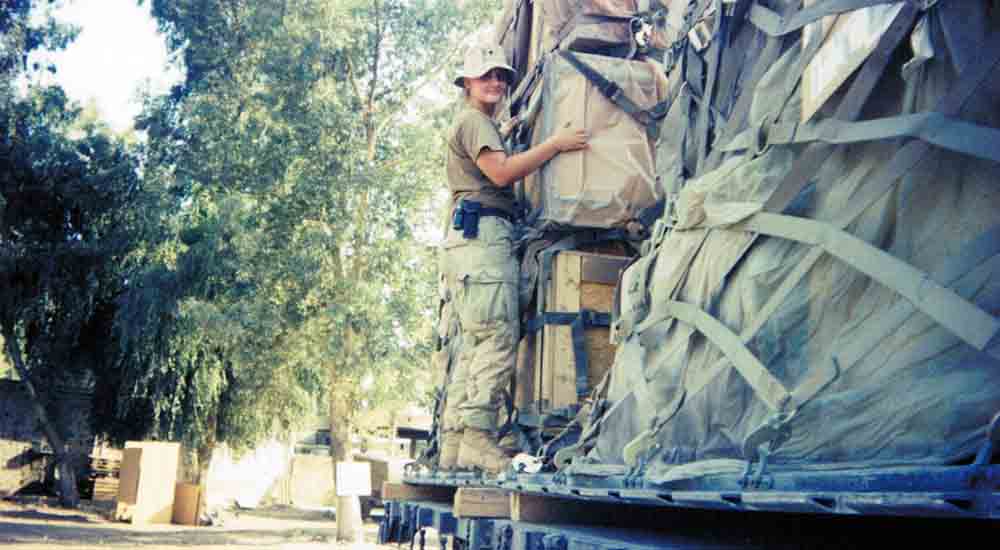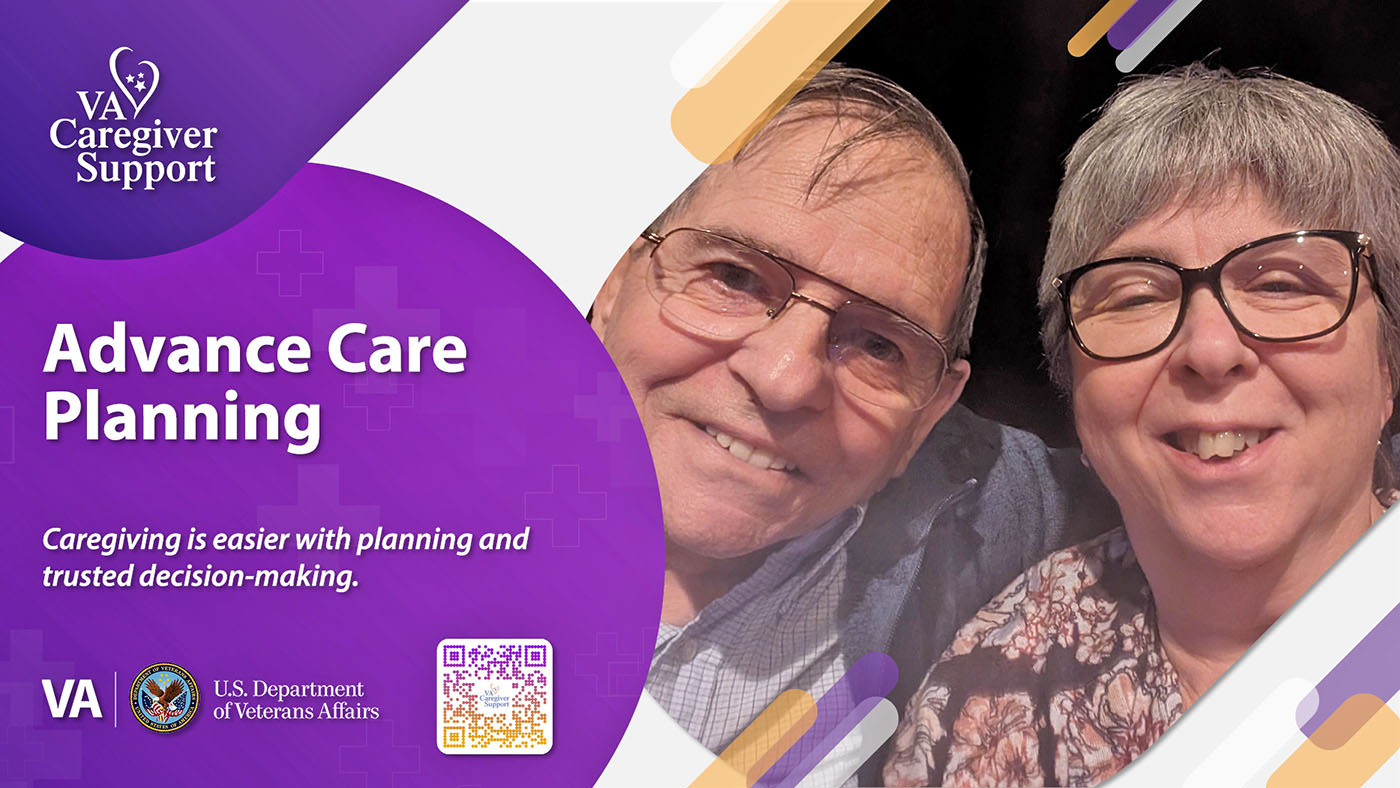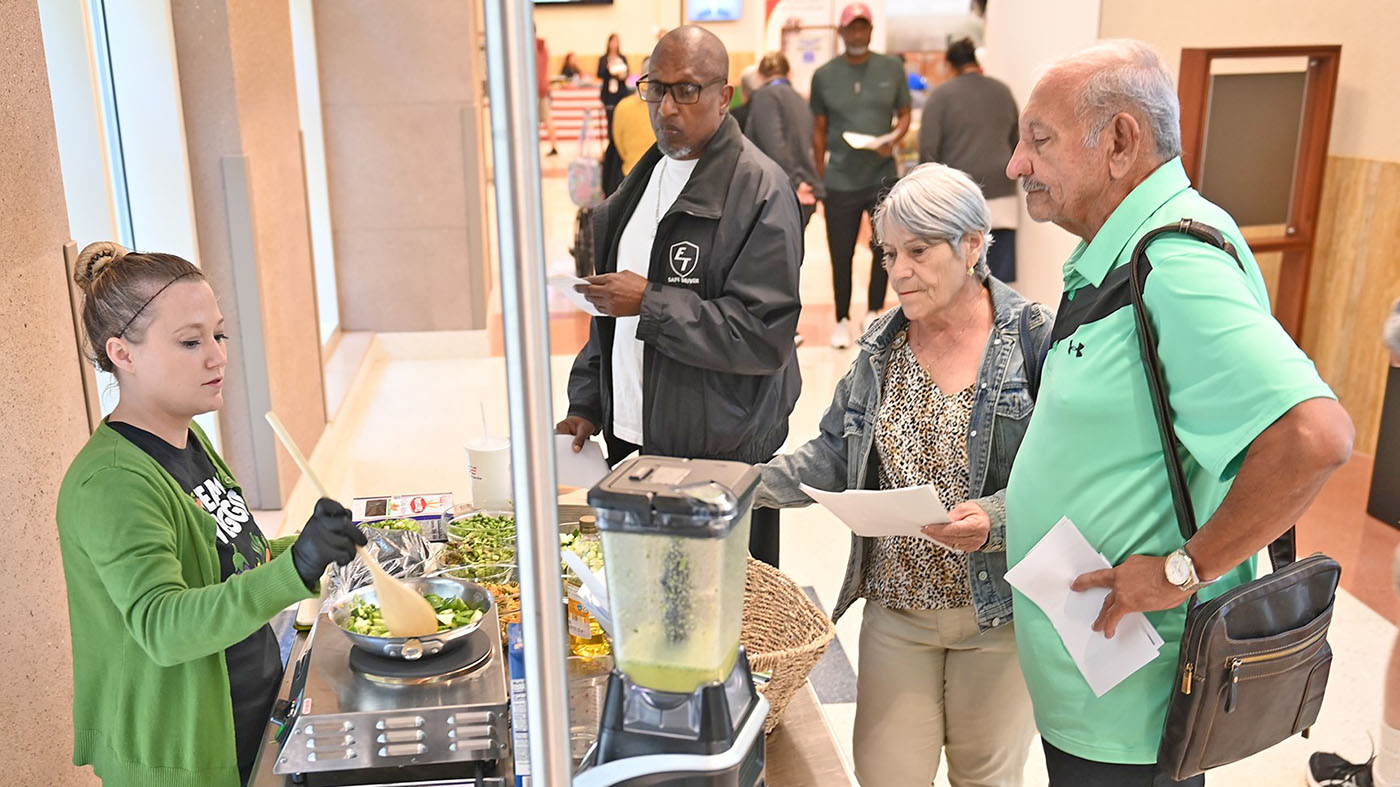Musculoskeletal (MSK) conditions can affect a person’s muscles, tendons, ligaments, bones, and joints—all of which can impact the body’s movement.
MSK conditions may be caused by an accident, overuse, or repetitive motions. Sometimes people can have pain without ever being injured.
MSK conditions are common in women Veterans
Military service is hard on the body. Wear and tear from trauma, high-impact, and high-intensity training, and carrying heavy gear can cause injuries in anyone.
Overuse injuries are common in women Veterans, especially involving the hips, knees, and ankles.
In 2003, Elizabeth Jackson deployed as a truck driver in Iraq. She was injured in a motor vehicle accident that dislocated her jaw and injured her hips and her back.

“It was hard to do your job when you have a 72-hour mission with gear that causes strain on your body.”
“Throughout the whole deployment, my helmet felt really heavy because it didn’t fit well. I had to braid my hair around my head so it would fit better. Also, my flak vest was too long and putting pressure on my hips where I had my injury.
“Some of the equipment I used sat on parts of my body in a way that created pressure points and pain.”
Ultimately, the weight of her gear and the nature of her job made her injuries worse. “It was hard to do your job when you have a 72-hour mission with gear that causes strain on your body.”
VA social worker talked her through her challenges
Two years after she separated from the Army, Jackson was still struggling with physical injuries and mental health concerns. She finally decided to seek care at VA.
“Things came to a head,” she said. “I was angry and I was hurting a lot. I was experiencing PTSD and traumatic brain injury symptoms in addition to the pain.”
With outside stress, she said she “didn’t have time for any of it,” adding, “I was ignoring the pain and not prioritizing myself.”
The day Jackson enrolled in VA, she saw an OEF/OIF social worker who talked her through the challenges she was facing and the services available at VA. Jackson was nervous to be there, so the social worker encouraged her to understand that she was exactly where she should be and needed to be.
“Before I came to VA, I didn’t feel like a Veteran. Veterans are heroes, and I didn’t feel like one. The social worker made me feel like I deserved to be here.
“She made sure I didn’t leave without seeing primary care and mental health. I was able to get a complete work-up before I left.”
Without treatment, MSK injuries often create long-term challenges
VA providers are specifically trained to treat patients who sustain injuries during their time in the service as well injuries that may happen throughout a Veteran’s life.
Without treatment, MSK conditions can lead to chronic pain. VA uses a variety of treatment options and a Whole Health approach in treating MSK conditions. Treatments may include:
- Physical therapy
- Occupational therapy
- Chiropractic treatment
- Rheumatology
- Neurology
- Primary care
- Orthopedics
- Pain management (such as steroid injections and surgery, as needed)
- Complementary and integrative health practices such as acupuncture, massage, yoga and more
“I’ve had the same neurologist and primary care doctor for 10 years at VA,” Jackson said. “And they have all worked together really well to make sure that my treatment was comprehensive. They tried to give me the least amount of medication that treated the most issues.”
Listen to your body
If you were injured during your time in the military or after and it impacts your daily life—such as causes pain—listen to your body and make an appointment at your local VA to talk with your primary care provider. They will connect you with needed services.
You can also contact the Women Veterans Program Manager at your local VA by:
- Contacting your local VA and asking for the Women Veterans Program Manager
- Calling the Women Veterans Call Center (WVCC) at 855-829-6636
- Chatting online with a trained WVCC representative
All Veterans are welcome at VA. VA actively works to make facilities a more comfortable place for women to receive their health care.
As Jackson said, “Other women like me need to know that you are here, you served our country and there is a place for you at VA.
“Even if a past experience wasn’t the best, keep going and reach out to the Women Veteran Program Manager, because there will be a provider at the medical center who can help you.”
Topics in this story
More Stories
In this week's #LiveWholeHealth video, learn how to incorporate mindful movement into your day with yoga and stretching to improve posture, reduce stress and boost mood.
VA’s Caregiver Support Program provides Veterans’ caregivers, especially first-timers, guidance and resources.
Healthy Teaching Kitchen offers Veteran patients nutrition knowledge and the guidance and skills to learn how to cook.







Is msk the same as fibromyalgia?
I would never a VA center again. It is not a safe place for women. I was in the DC VA hospital and men would come into my room at night. Very frightening. The victim becomes the watched. They consider every veteran has mental illness, and treat you as if you have no mental capacity. Beware, stay safe!
The VA Women’s Health services I receive at the Baltimore VA hospital has been excellent. I appreciate the two doctors I have had, my first doctor did retire, but my change over was seamless. I am glad the VA center that I use knows how to operate. They need to know their effort is appreciated.